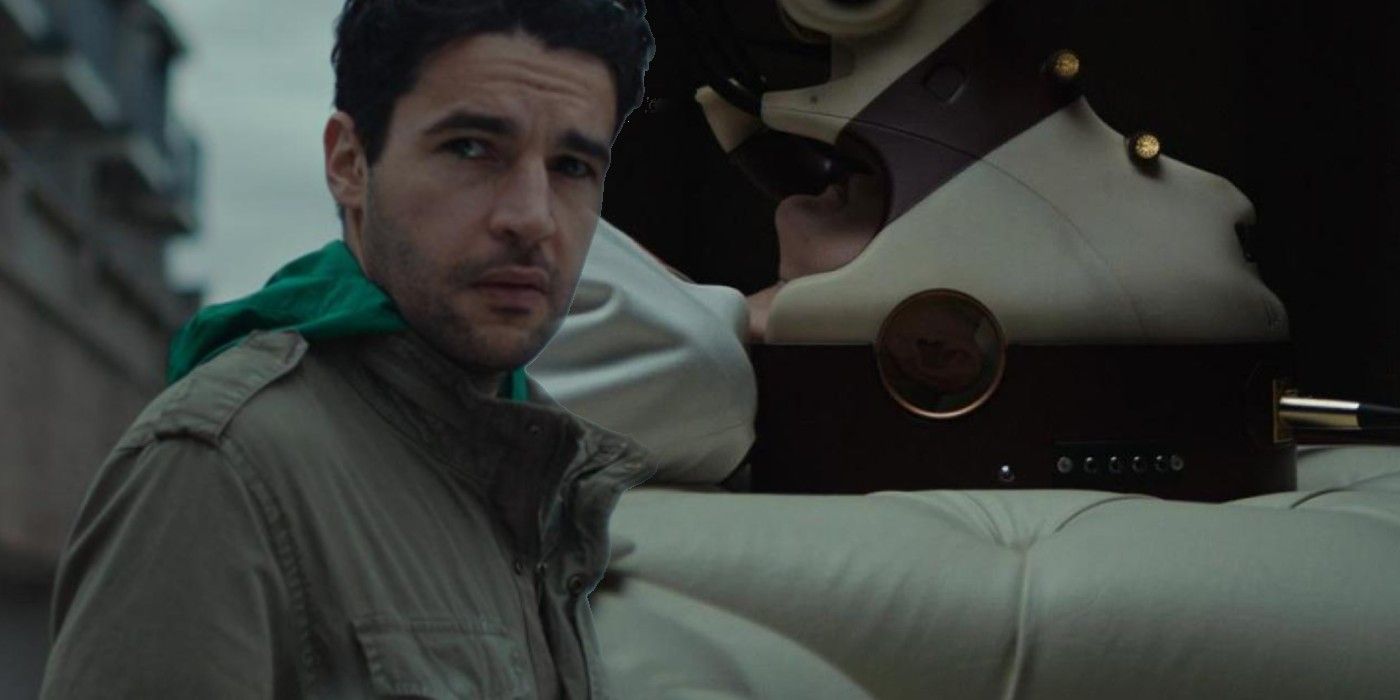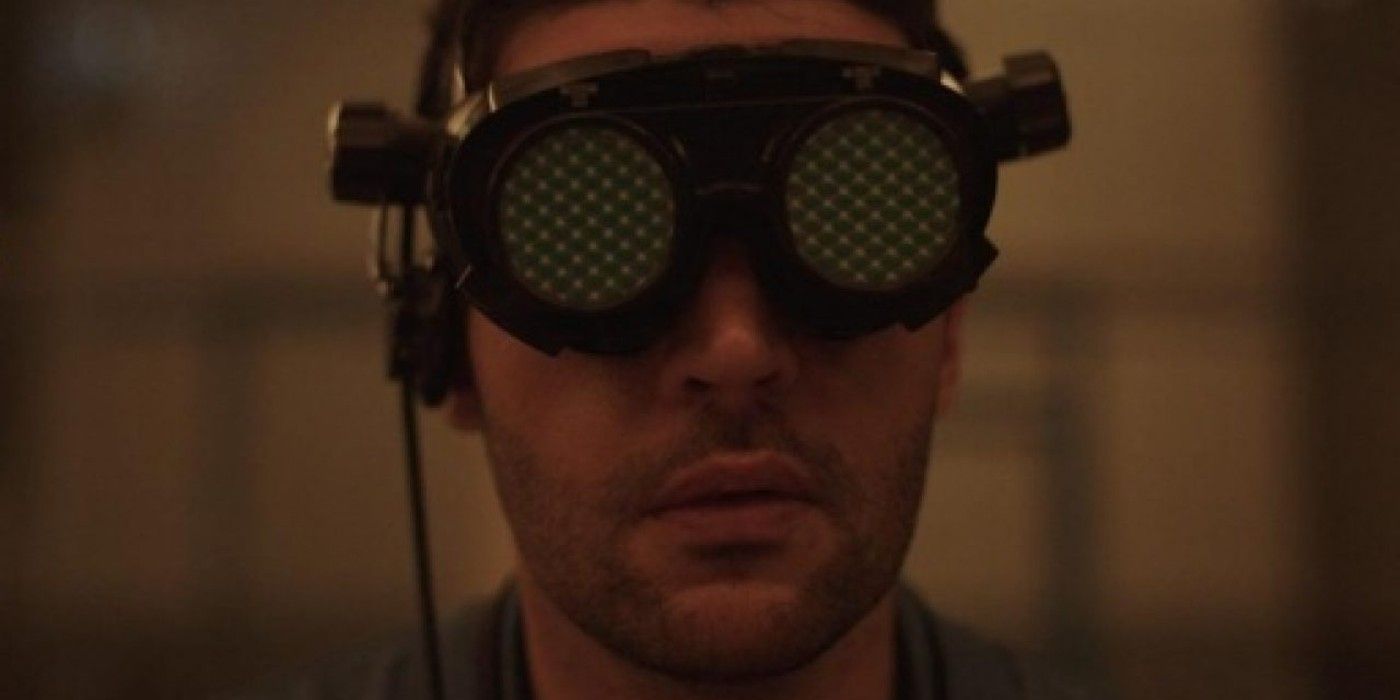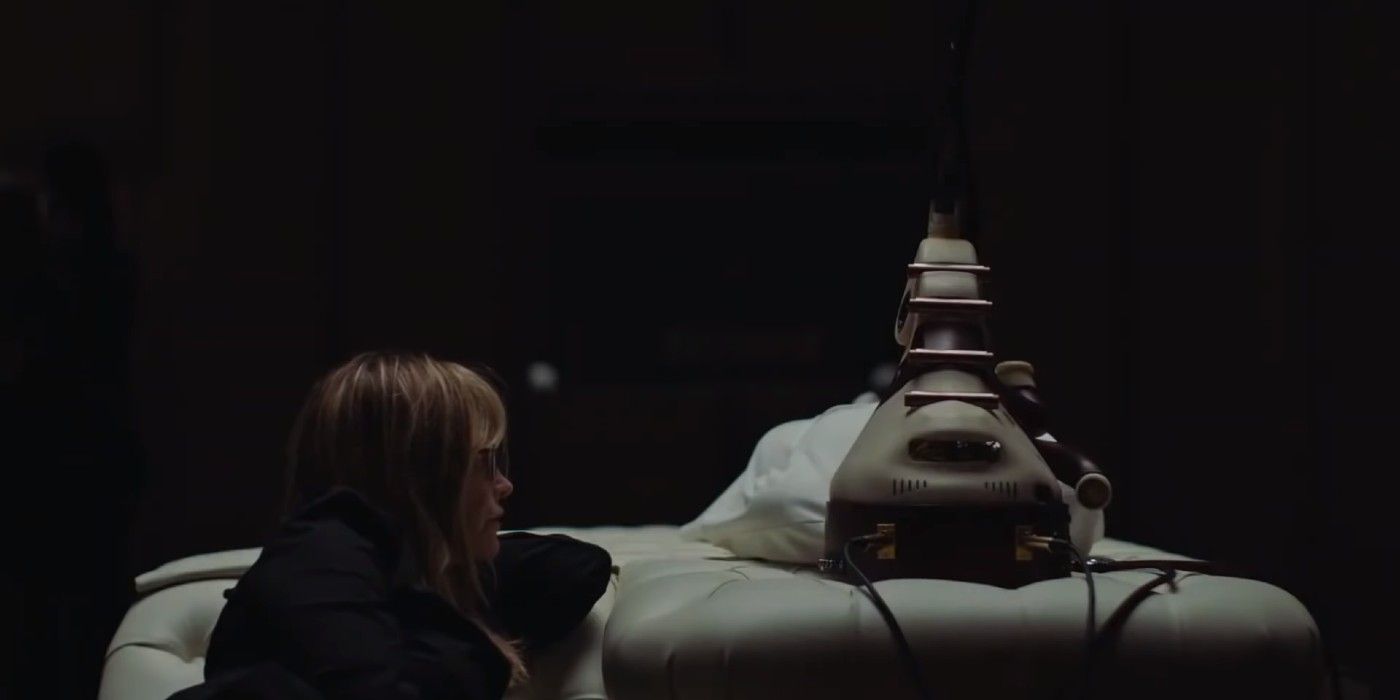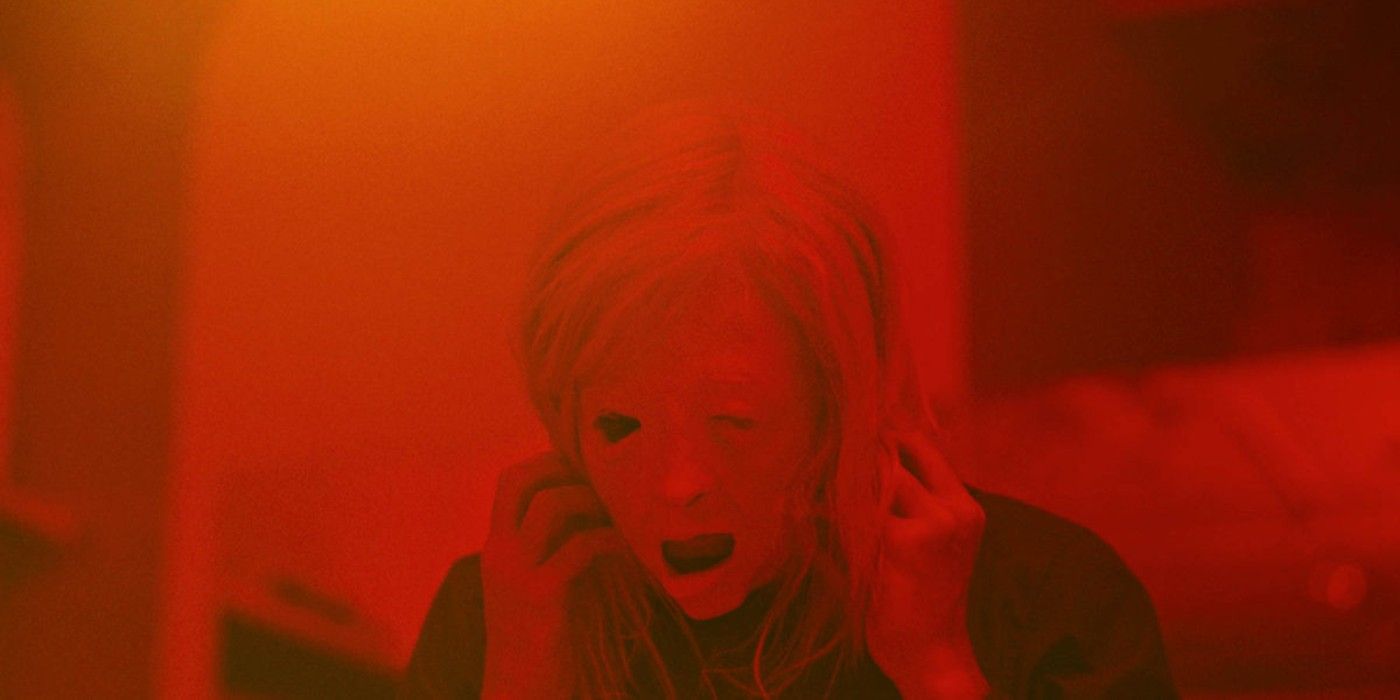WARNING! Major spoilers for Possessor ahead
Brandon Cronenberg's Possessor leaves several questions unanswered by its ending, especially in regard to the movie's possession, technology, and main characters. Possessor is an artfully nuanced approach to examining corporate control and technology, but requires an equally as close analysis into its contents.
Son of body horror legend David Cronenberg, Brandon Cronenberg made his feature-length directorial debut in 2012 with Antiviral. While he has been compared to his father in several instances, their approach to the sub-genre of body horror is entirely different. David Cronenberg is primarily known for directing The Fly (1986), Videodrome (1983), and Scanners (1981), among others. He has been recognized for popularizing body horror and utilizing its elements to commentate on sexuality, gender, technology, psychology, and beyond. Cronenberg essentially passed the torch to his son, with similar dialogues taking place in Brandon Cronenberg's short, but impressive, filmography.
Possessor stars Andrea Riseborough as Tasya Vos, a woman who works as a "possessor". She is contracted to assassinate a data mining corporation's owner, John Parse (Sean Bean), in order for his stepson to take over. It's an exciting prospect due to the opportunity it presents for Tasya's company to gain control over Parse's company through blackmail. She is informed by her boss, Girder (Jennifer Jason Leigh) that she will be possessing Colin Tate (Christopher Abbott, It Comes At Night), who is dating Parse's daughter. The goal is to get as close to the two as possible in order to assassinate them. Along the way, unexpected interferences happen to the technology they're using and Tasya's subconsciousness, which all lead to Possessor's bizarre and unforgettable ending — here's what it all means.
Possessor's Ending Explained
In the end of Possessor, Colin tries to gain full control of his body again. When he meets Tasya on a plane of consciousness, the two have a conversation that involves her revealing that he always had more control than her. Colin threatens to kill Michael, Tasya's estranged partner, if she does not leave his body immediately. She responds without a single care about him and, when Colin wakes up, he kills Michael as revenge. Without warning, he is stabbed in the throat by Ira, Tasya's son. With revenge still on his mind, Colin shoots the young boy. Tasya is pulled out of Colin's mind, no longer possessing his body, and Girder is pulled out of Ira.
The ending reflects the lengths that people will go in order to get revenge for the loss of loved ones. It also exemplifies the risks that messing with harmful technologies can have on others, like a Black Mirror-esque cautionary tale. By the end of the movie, Tasya is entirely void of empathy — this is all a result of the constant possessions, Colin taking some of her memories while on the plane of consciousness, and the loss of her loved ones. Possessor's ending showcases that the company Tasya works for only cares for their best interests, not their employees. Corporate greed and technology go hand in hand in Cronenberg's movie.
How Does Possession Work In Possessor?
Similar to the virtual reality devices used in popular science fiction, the possessor equipment is placed over someone's eyes and ears in order to cut them off from the rest of the world. The only person allowed in the room with the hired individual will pull them out of the possession once they've completed their job. It resembles in "the drop" in Inception, except the possessor has to kill the possessed person in order to be pulled out of the consciousness. They are only able to possess someone if they have a piece of their hair, blood, or flesh — this creates a physical connection between the two. Without it, the possession cannot occur.
In Possessor, the concept of possession is not a paranormal one. Instead, it is solely created through a psychic connection that's strengthened by the bond of two bodies. When a possessor possesses someone, their subconscious mind is implanted into them. They exist on a plane together, with only one person having total control. In Possessor, it all goes wrong when Colin takes over the possession from Tasya. When he takes her face off of her body and puts it onto his own, he gains control. However, even that trade is much more complicated than it seems.
How Colin Took Over Tasya's Possession
Colin's subconscious overpowers Tasya's despite the fact that she's a trained possessor who has been doing it for years prior to the events of the movie. When he enters her subconscious, he cuts off her face and puts it on his own. It allows for him to gain all of her memories, giving him the upper hand. In the beginning of the movie, it is alluded that Tasya has been overused by her job, which makes her withdrawn from her own being and those around her. As a result, she's unable to process emotions and situations the way that she could before she became a possessor.
Tasya is weak and Colin's subconscious is strong because he's never had to possess anyone, nor has he ever been possessed before. Due to her weakness and his strength, it is easy to overpower her control over his body and mind. Once he does this, Colin successfully gains control. However, this technology and system isn't foolproof; the corporation that Tasya works for is fully aware of that, too. When Tasya ends a possession, she is required to examine artifacts from her life and from others' lives in order to determine whether or not she has fully come back to her body. When Colin took over and placed Tasya's face over his, he took away her empathy and a final piece of her. Ultimately, Colin could only overpower Tasya's control because her subconscious is much weaker than his.
Possessor is a highly nuanced horror movie that merges the fear of technological advances and the ways that it impacts people's ability to think, feel, and interact with their environments. The possession is the most intricate piece of the movie. It is used to outline the corporate greed that begins the movie, the lack of empathy by its end, and every moment in between that critiques society's perception of power.




